

In 1991, marketing and psychological expert Ernest Dichter coined the name “Focus Group.” The term described meetings held with a limited group of participants with the objective of discussion.
The group’s purpose is not to arrive at a consensus or agreement on the topic. Instead, it seeks to identify and understand customer perceptions of a brand, product, or service.
We’ll cover what a focus group is, how to conduct one, and example questions and best practices below.
Content Index hideA focus group is best defined as a small group of carefully selected participants who contribute to open discussions for research. The hosting organization carefully selects participants for the study to represent the larger population they’re attempting to target.
The group might look at new products, feature updates, or other topics of interest to generalize the entire population’s reaction. This research includes a moderator. Their job is to ensure legitimate results and reduce bias in the discussions.
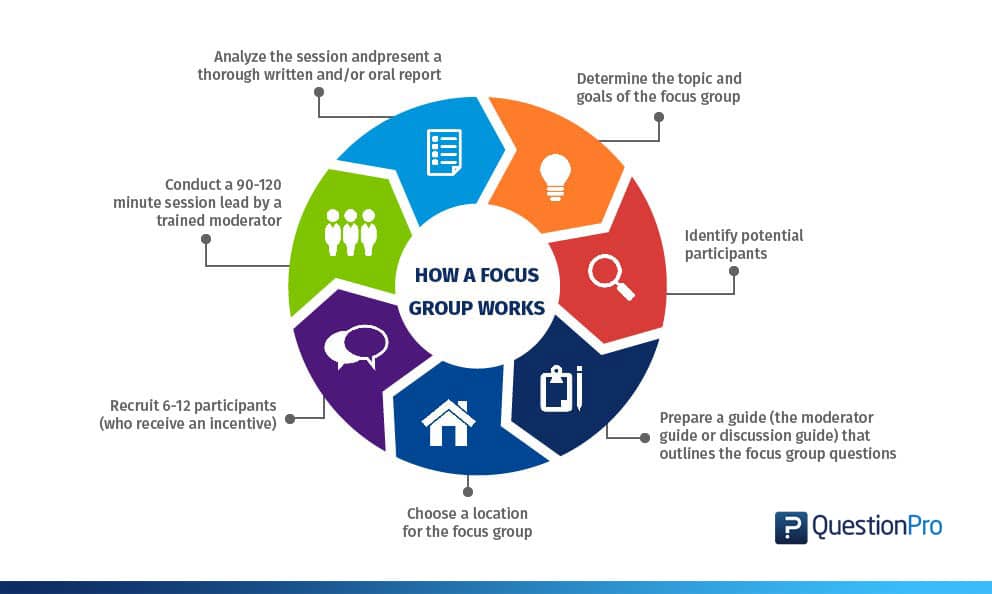
These groups possess a distinct advantage over other market research and market research methods. They capitalize on the moderator’s communication with participants and the flexibility to move the discussion. It allows you to extract meaningful insights and opinions.
Explore our latest article delving into real-world examples of qualitative data in education. Why not take a look and gather more insights from the valuable information we’ve shared?
Your choice of focus group depends on the needs of your action research. Types include:
A focus group is a research method or technique that is used to collect opinions and ideas regarding a concept, service, or product. Follow the below steps to conduct it:
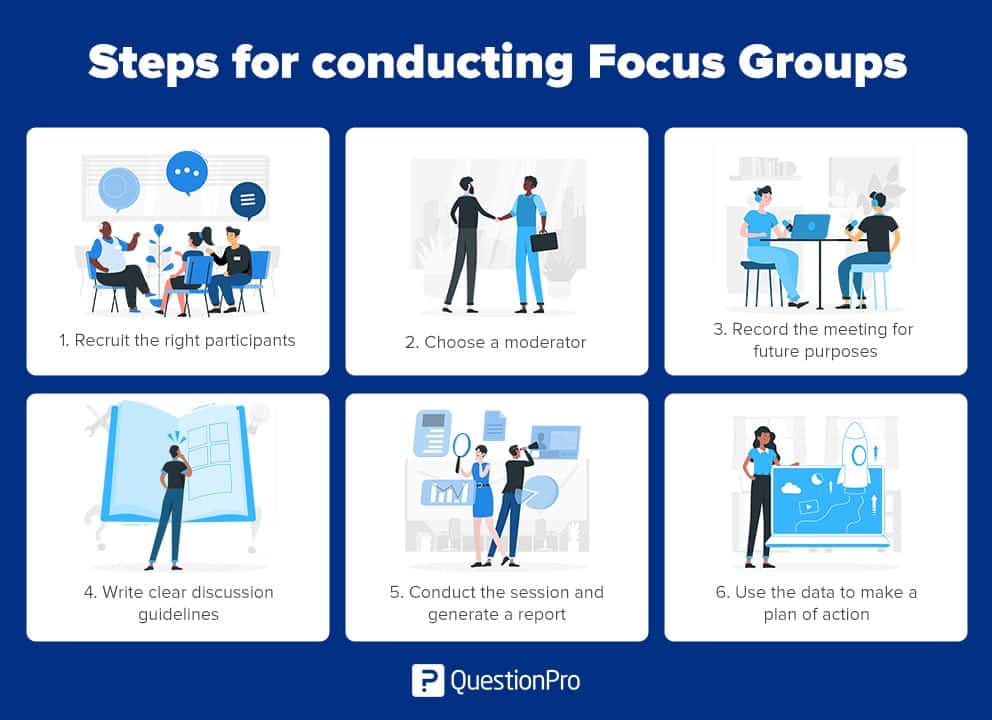
A researcher must be careful while recruiting participants. Members need adequate knowledge of the topic so that they can add to the conversation.
Your moderator should understand the topic of discussion and possess the following qualities:
Verify your moderator doesn’t know any of the participants. Existing relationships between a member and moderator cause bias and can skew your data.
While conducting a focus group, recording the sessions or meetings is essential. A researcher can record the discussion through audio or video. You must let participants know you’re planning to record the event and get their consent.
Before the session starts, writing down clear session guidelines is crucial. Include key questions, expectations of focus group members, whether you’re recording the discussion, and methods of sharing results. Give out the instructions in advance and request participants to comply with them.
Once participants understand their role, the moderator leads the survey. You can ask members to fill out a feedback form to collect quantitative data from the event. Use your data collection and generate reports on the overall findings of your study.
Share your report with stakeholders and decision-makers in your organization. According to the focus group feedback, a good report helps you design actionable plans to improve products or services. Update the group members on the changes you make and the results of those changes.
Focus groups are common in three situations:
For example, a laptop company needs customer feedback about an upcoming product. Focus group provides direct information about the marketing research from actual consumers.
The company chooses eight individuals representing their target market for a constructive discussion. The moderator asks questions regarding customer preference for laptop size and features. Group members discuss why they do or do not like certain aspects of a laptop. The company uses the opinions of the participants to create a product that fits customer needs and wants
Follow these five steps to create a market research focus group:
Focus group is a well-liked research technique due to its simple setup and the insightful data it can yield. It has advantages and disadvantages much, like other research techniques.
When using a focus group in market research, you must ask the right questions for accurate results. Good group questions have the following characteristics:
Avoid asking questions to specific individuals to ensure the inclusion of all participants. Restrict discussion time per question to 5-20 minutes to keep the conversation efficient.
There are four categories:
There are four categories:
1. Primary question: This first open-ended question initiates the entire discussion.
2. Probe questions: These questions dig deeper into the discussion of the primary question.
3. Questions to follow up: After establishing the overall knowledge and feelings of the group, the moderator identifies specific insights.
4. Questions for the conclusion: Review previous questions to avoid overlooking the main points. It is the time when a moderator can revisit specific topics to gather more data.
Here are some questions you may ask to recruit participants:
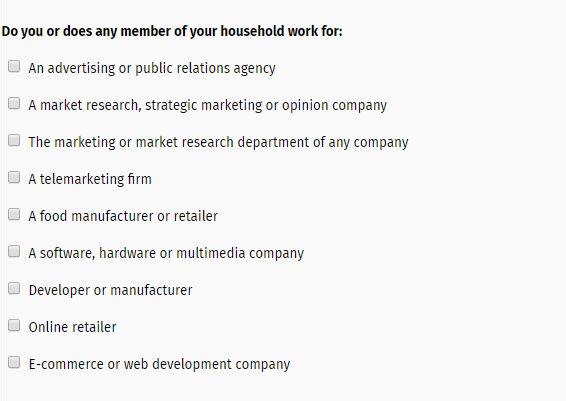

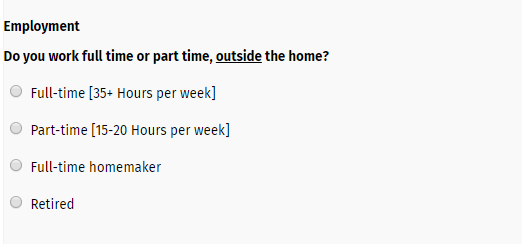
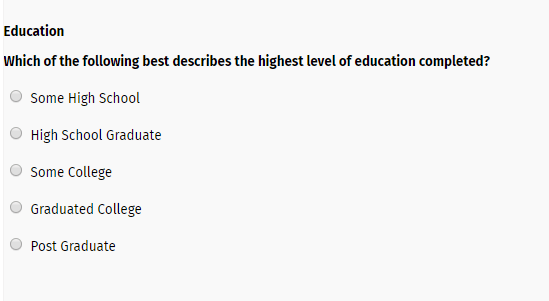
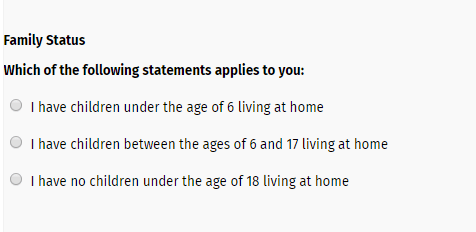
Our focus group recruitment questionnaire template gives you a range of survey question types for maximum responses. These responses also help you make the best choice in recruiting the appropriate group members.
Online focus groups remove the need for a physical location. Like in-person groups, online groups involve 6-10 participants who share their opinions. Many researchers prefer online focus groups for convenience and cost-effectiveness.
QuestionPro Communities is an online focus group software. It’s a highly-effective market research tool that helps researchers find online focus groups for their research purposes, including market research.
QuestionPro Communities software includes:



Organizations can ensure that they gather the most valuable insights from their focus groups by carefully planning, recruiting, and conducting the sessions. The examples provided highlight the versatility of focus groups, highlighting the wide range of applications for this research method.
Organizations can gain a deeper understanding of their customers and make more informed decisions that drive success by leveraging the power of focus groups.
QuestionPro Communities is the only online focus group software available on desktop and mobile. Go mobile and take Discussions, Idea Board, and Topics anywhere your respondents go.
Start conducting online focus group surveys with participants from across the globe with QuestionPro Communities today.